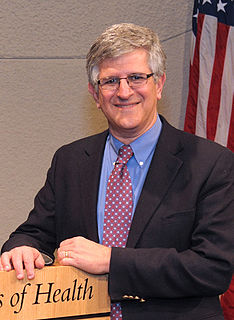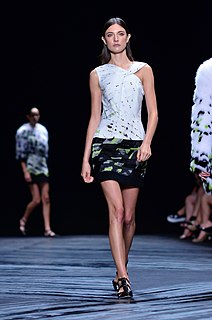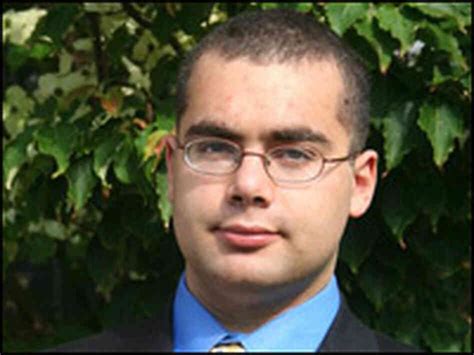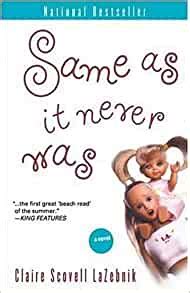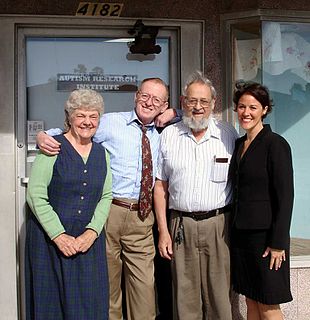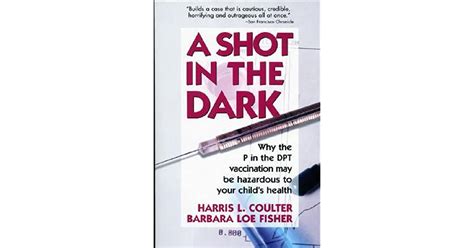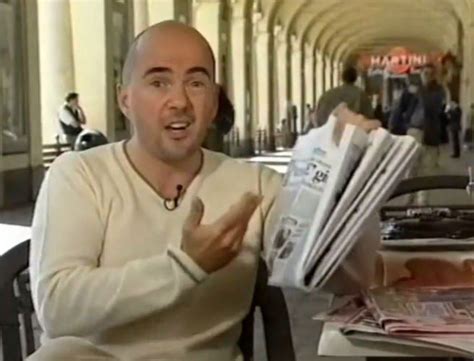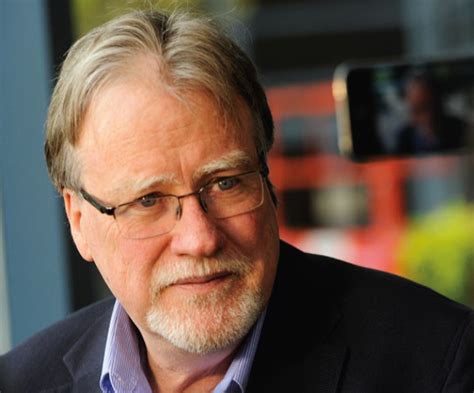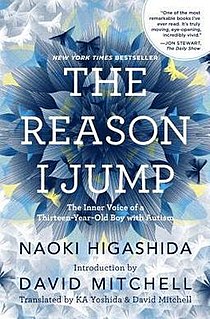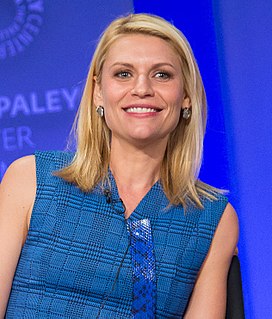Top 295 Autism Quotes & Sayings - Page 5
Explore popular Autism quotes.
Last updated on April 21, 2025.
Today, however, anti-vaccine activists go out of their way to claim that they are not anti-vaccine; they’re pro-vaccine. They just want vaccines to be safer. This is a much softer, less radical, more tolerable message, allowing them greater access to the media. However, because anti-vaccine activists today define safe as free from side effects such as autism, learning disabilities, attention deficit disorder, multiple sclerosis, diabetes, strokes, heart attacks, and blood clots—conditions that aren’t caused by vaccines—safer vaccines, using their definition, can never be made.
Autism is a neurological disorder. It's not caused by bad parenting. It's caused by, you know, abnormal development in the brain. The emotional circuits in the brain are abnormal. And there also are differences in the white matter, which is the brain's computer cables that hook up the different brain departments.
I volunteered at UCLA's occupational therapy ward, where there are lots of kids with autism and emotional problems. I just wanted to prove to myself that I could not break down and cry at everything, and that I could just help somebody else. The one thing I really remember was that when we would take them out of the hospital for a walk around campus, they would freak out the most when we were waiting for the elevator. I remember the guy at the elevator said to himself, "Transitions are the hardest." And I said to myself, "Transitions are always the hardest."
I'm actually working on with Autism Speaks. Since my brother's 18, I wanted to work on a program for these older kids. A lot of the schools' special education programs end when the kids are 21, like my brother's school. What is next for these kids? I want him to be constantly active, and not just sitting at home. I want him to be constantly growing and it would be amazing if the funds could go to something like jobs for these kids, or a home where they can be together.
Rain Man certainly didn't test really well. If you look at it carefully, you have a disease autism they didn't understand back then, they didn't know in the test audience whether it's okay to laugh or not laugh, because it's a film that's done in a way where, "Well, maybe I'm not supposed to laugh." At the end of the film, Dustin Hoffman gets on the train and doesn't even acknowledge his brother. Not even a glance, nothing. That's why the studio said, "Can't you just have him look at Tom Cruise at the end of the film?"
There is a huge boom in autism right now because inattentive mothers and competitive dads want an explanation for why their dumb-ass kids can't compete academically, so they throw money into the happy laps of shrinks . . . to get back diagnoses that help explain away the deficiencies of their junior morons. I don't give a [bleep] what these crackerjack whack jobs tell you - yer kid is NOT autistic. He's just stupid. Or lazy. Or both.
I had never had any experience of autism before and I would come home and look at my son, Billy, who is now two, and be absolutely paranoid, particularly because he loves Thomas the Tank Engine, and lots of autys love Thomas. But he is not very good at pointing, and autistic children absolutely love pointing.
Savant syndrome is not a disorder in the same way as autism is a disorder or dementia is a disorder. Savant syndrome are some conditions that are superimposed and grafted on to some underlying disability. So savant syndrome is not a disease or disorder in and of itself. It is a collection of characteristics, or symptoms, or behaviors that have grafted on to the underlying disability.
I was nonverbal until I was four years old. Back in the 50s, I was the kind of kid they used to just put away in an institution. But then you get the milder autism where there's no speech delay, but they're socially awkward. Those kids were around when I was a child. They were just called geeks and nerds.
We have to be careful that we don't keep multiplying disorders and diluting them. I think there is a difference. People talk about Asperger's as high-functioning autism, which I think it is. But it does have some of its own characteristics, like the preservation of language, particularly, which may be right brain dysfunction instead of left brain dysfunction, and we lose something in that, as things lose their specificity, and we keep diluting things. I'm not sure that's helpful.
In America we've spent over a billion dollars on autism research. What have we got for that? We've not seen anything that's appreciably impacted the quality of life of autistic people, regardless of their place on the spectrum. Quite frankly, we've spent $1bn figuring out how to make mice autistic and we'll spend another $1bn figuring out how to make them not autistic. And that's not what the average person wakes up in the morning aspiring to. They think: am I going to be able to find a job, to communicate, to live independently, either on my own or with support? Those are the real priorities.
Parents don't particularly care whether it's early infantile autism or whatever label the clinicians have put on it. All they want is treatment, and they want what's best for their child, whatever that is. And when it comes to treatment, it may be that there's much more shared interventions that don't make any difference what label we're putting on it.
Don't think that there's a different, better child 'hiding' behind the autism. This is your child. Love the child in front of you. Encourage his strengths, celebrate his quirks, and improve his weaknesses, the way you would with any child. You may have to work harder on some of this, but that's the goal.
When the link between the use of unsafe, mercury-laden vaccine and autism, ADHD, asthma, allergies and diabetes becomes undeniable, mainstream medicine will be sporting a huge, self-inflicted and well-deserved black eye. Then will come the billion-dollar awards, by enraged juries, to the children and their families. I can't wait.
A major cause of the Roman Empire's decline, after six centuries of world dominance was its replacement of stone aqueducts by lead pipes for the transport and supply of drinking water. Roman engineers, the best in the world, turned their fellow citizens into cripples. Today our own "best and brightest," with the best of intentions, achieve the same end through childhood vaccination programmes yielding the modern scourges of hyperactivity, learning disabilities, autism, appetite disorders, and impulsive violence.
Metaphor isn't just a fancy turn of speech. It shapes our thoughts and feelings, reaches out to grasp new experience, and even binds our five disparate senses. James Geary's fascinating and utterly readable I is an Other brings the news on metaphor from literature and economics, from neuroscience and politics, illuminating topics from consumer behavior to autism spectrum disorders to the evolution of language. As a writer, as a teacher, and as someone just plain fascinated by how our minds work, I've been waiting years for exactly this book.
I get goose-bumps when you talk about Diane Wilson. Who knows where she found that courage? When she was a child, she would crawl under the bed when a stranger came to the house. But in 1989, she found out that her county in south Texas was ranked worst in the country for toxic waste. She wondered if the effluent, dumped into the waters where she and her family had shrimped for generations, might be responsible for the dwindling fish populations. And she suspected that her son's autism might be related to the pollution.
When parents say, "I wish my child did not have autism," what they’re really saying is, "I wish the autistic child I have did not exist, and I had a different [nonautistic] child instead." Read that again. This is what we hear when you mourn over our existence. This is what we hear when you pray for a cure. This is what we know, when you tell us of your fondest hopes and dreams for us: that your greatest wish is that one day we will cease to be, and strangers you can love will move in behind our faces.
People with autism never, ever feel at ease, wherever we are. Because of this, we wander off - or run away - in search of some location where we do feel at ease. While we're on this search, it doesn't occur to us to consider how or where we're going to end up. We get swallowed up by the illusion that unless we can find a place to belong, we are going to be all alone in the world.
I actually think in some ways that it might be more challenging to be bipolar because it's so mercurial - it's so ever-changing. You can't get any traction. You can't build on a system. Whereas, somebody who has Asperger's, which is certainly a much more forgiving expression of autism, can create models for coping and build on them over time.
When you're dealing with a problem as complex as autism, you have to look at it from many different points of view and assemble evidence from many different vantage points. Biological evidence in humans and in animals, toxicologic evidence, how does the body deal with toxins, and evidence looking at the actual experience in populations.
I've learned that every human being, with or without disabilities, needs to strive to do their best, and by striving for happiness you will arrive at happiness. For us, you see, having autism is normal-so we can't know for sure what your 'normal' is even like. But so long as we can learn to love ourselves, I'm not sure how much it matters whether we're normal or autistic.
So, obviously, autism - which is the key in this - is a very big problem. We need more studies about it. We certainly have to try to figure out what causes it and why and do something about it. But to tab it to vaccines, I think, is a real mistake. Not only is there no evidence, but what it leads to is larger numbers of unvaccinated children. And that's not only a problem for polio. It's a problem for a wide range of vaccine-preventable diseases.
True, God hates Alzheimer's, spinal cord injury, mental illness, autism, and the rest (these conditions are all symptoms of the Fall). Yet he permits these things to accomplish something far more precious in our lives: patience, endurance, compassion for others who hurt, and refined faith and trust in God, to name a few.
If we think about the autism spectrum as involving a very strong drive to systemize, that can have very positive consequences for the individual and for society. The downside is that when you try to systemize certain parts of the world like people and emotions, those sorts of phenomena are less lawful and harder to systemize.
I regret that my coauthors and I omitted statistically significant information in our 2004 article published in the journal Pediatrics. The omitted data suggested that African American males who received the MMR vaccine before age 36 months were at increased risk for autism. Decisions were made regarding which findings to report after the data were collected, and I believe that the final study protocol was not followed.
Autism is a big continuum, going from someone who remains nonverbal, all the way up to geniuses on Silicon Valley. And some kids are visual thinkers like me. Other kids are pattern thinkers - your mathematicians, your programmers. And there are others, they are word thinkers. Uneven skills. You need to take the thing that they're good at and you need to work on developing it.
Criticizing people, winding them up, making idiots of them or fooling them doesn't make people with autism laugh. What makes us smile from the inside is seeing something beautiful, or a memory makes us laugh. This generally happens when there's nobody watching us. And at night, on our own, we might burst out laughing underneath the duvet, or roar with later in an empty room ... When we don't need to think about other people or anything else, that's when we wear our aural expressions.
I am the father of a 9 year-old son whose descent into the world of autism began at the age of 7 months old after receiving numerous vaccinations in a single day; the same story that is told by thousands of other parents of children throughout the country whose healthy, normally developing children have become autistic after vaccinations.
You take somebody - one person has definitely got autism, you got another person that maybe has some of those traits and maybe there's some anxiety, depression, some epilepsy or something in the family history. Put them together, you're more likely to have a severely autistic kid than if you don't have any neurological problems in the family history.
The chemtrails can cause all these things. Autism. It's not just vaccines that have gone wrong. The chemtrails that are causing all this that you see flying above you. You've seen 'em, folks, streaks. Usually behind airplanes. That's why they're called chemtrails. Contrails. You think they're contrails, but they're actually very insidious things, chemtrails.
We've got to learn from each other. We have to put ourselves out there, we want to pull the other up because we want/should pull the other line up as we all have strengths and weaknesses and together we make a stronger group, family, community, world. And so it becomes a beautiful idea that can be practiced in that dealing with a person with autism can be...It's just different. It's not weird.
It's always nice when someone reaches out and says, "I have an autistic brother," or "I have someone else." Some people are really sweet and they're like, "Aw, you're my role model, thank you for doing this." This is why I do it. I want to use being involved in this Autism Speaks charity and take advantage of my contacts in order to raise awareness. It's something I've been wanting to do for so long.
Information's right at our fingertips, but so is what you want to believe. It's the classic thing of someone Googling 'autism vaccines' - they'll find what they're looking for, depending on what they think. You'll find lots of people who are just bolstering what they already think, bolstering their cultural attitude.
If you have high-functioning autism, you may well have a lot of autistic traits but if you've got a particular lifestyle where it's possibly an advantage to be leading a solitary lifestyle and be quite obsessive, you're clearly able to function and maybe even make valuable contributions in your work, so arguably you don't need a diagnosis.
I have respect for mother nature's methods of robustness (billions of years allow most of what is fragile to break); classical thought is more robust (in its respect for the unknown, the epistemic humility) than the modern post-Enlightenment naïve pseudoscientific autism. Thus my classical values make me advocate the triplet of erudition, elegance, and courage; against modernity's phoniness, nerdiness and philistinism
